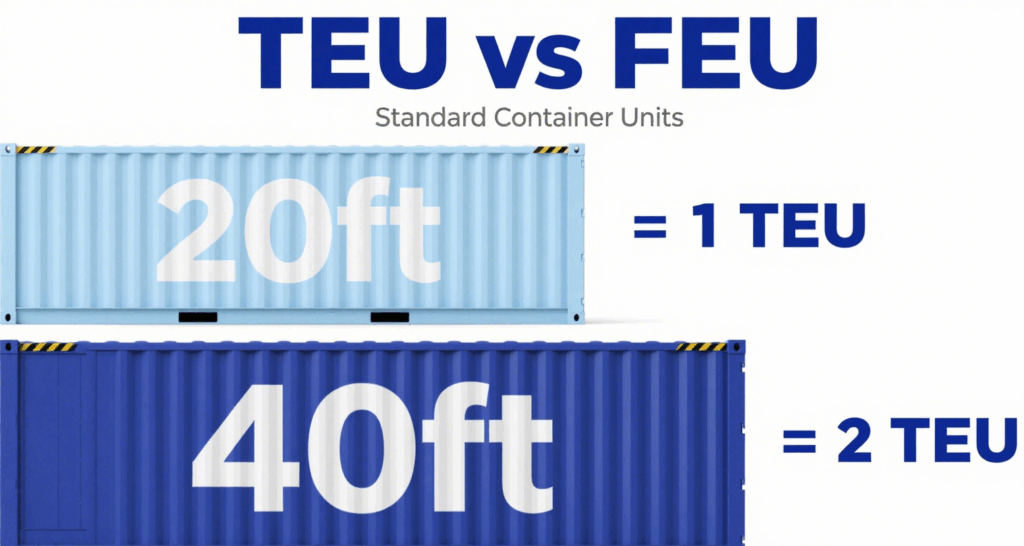- By Della tj
- October 22, 2025
- Sea Freight, Shipping
Shipping goods across continents can be challenging, yet professional sea freight from Shenzhen to Belgium remains one of the most efficient and economical options for global businesses. With professional freight forwarders handling customs clearance, container booking, and documentation, companies can focus on growth instead of logistics.
What Makes Sea Freight from Shenzhen to Belgium Professional?
Sea freight services between Shenzhen and Belgium stand out for their cost efficiency, reliability, and scalability.
A professional sea freight service ensures smooth handling from port to port—including pickup, packaging, customs clearance, and final delivery.
Key benefits include:
- Cost savings: Ideal for heavy or bulk shipments.
- Wide capacity: Suitable for both FCL and LCL cargo.
- Environmental efficiency: Lower carbon emissions compared to air freight.
- Flexible scheduling: Regular departures from Yantian and Shekou ports to Antwerp and Zeebrugge.
Moreover, experienced freight forwarders provide door-to-door delivery, real-time tracking, and optimized routing, which collectively ensure reliability and visibility.
How Long Does Sea Freight from Shenzhen to Belgium Take?
Transit times depend on the shipping method, route, and port congestion. Typically, sea freight takes 28–35 days from Shenzhen to Belgium.
| Shipping Route | Estimated Transit Time | Mode | Remarks |
|---|---|---|---|
| Shenzhen → Antwerp | 28–32 days | FCL/LCL | Most popular route |
| Shenzhen → Zeebrugge | 30–35 days | FCL | Ideal for containers |
| Shenzhen → Ghent | 32–36 days | LCL | Slightly longer due to transshipment |
Additionally, customs inspection and inland transport can add 2–5 days, depending on cargo type and documentation readiness.
What Are the Shipping Costs from Shenzhen to Belgium?
Shipping costs vary according to cargo volume, weight, and service type.
Here’s an approximate cost breakdown for professional sea freight from Shenzhen to Belgium:
| Container Type | Average Cost (USD) | Cargo Weight | Remarks |
|---|---|---|---|
| 20ft FCL | $1,150 – $1,400 | ≤ 28 tons | Ideal for small loads |
| 40ft FCL | $1,800 – $2,300 | ≤ 30 tons | Best value for volume |
| LCL (per CBM) | $55 – $80 | Mixed cargo | Flexible for SMEs |
Pro Tip: Shipping off-peak (Jan–Feb or Sept–Oct) can lower freight costs by up to 15%.

What Documents Are Required for Sea Freight from China to Belgium?
Proper documentation ensures smooth customs clearance and compliance with EU trade laws.
Below is a checklist of essential export/import documents:
| Document Name | Purpose |
|---|---|
| Commercial Invoice | Proof of transaction |
| Packing List | Details of package contents |
| Bill of Lading | Contract of carriage |
| Certificate of Origin | Verifies product origin |
| Import License (if needed) | Required for controlled items |
| Customs Declaration | Legal entry of goods |
Additionally, professional freight agents often assist clients with electronic declarations and pre-clearance filing to reduce port delays.
How Does Professional Sea Freight Compare with Air and Rail Transport?
Each shipping method has unique benefits. The table below highlights how sea freight compares to air and rail freight from Shenzhen to Belgium.
| Transport Mode | Transit Time | Cost Level | Best For | Environmental Impact |
|---|---|---|---|---|
| Sea Freight | 28–35 days | Low | Heavy/Bulk goods | Low |
| Rail Freight | 16–22 days | Medium | Palletized goods | Moderate |
| Air Freight | 3–6 days | High | Urgent/High-value cargo | High |
Conclusion: Sea freight offers the best balance of cost, volume, and sustainability, making it ideal for large-scale trade operations.
Case Studies: Real-World Sea Freight from Shenzhen to Belgium
Case 1: Furniture Export from Shenzhen to Antwerp
Cargo: 2×40ft containers of wooden furniture
Transit Time: 30 days
Cost: $4,200 total
Transport Route: Yantian → Antwerp → Brussels (inland truck)
Result: Successful delivery under schedule, saving 12% on logistics costs.
Case 2: Electronic Components to Ghent
Cargo: LCL, 18 CBM electronics
Mode: Shared container (LCL)
Transit Time: 33 days
Cost: $1,150
Result: Reduced total shipping expenses by 25% vs air freight.
What Are the Advantages of Using Shenzhen as the Starting Point?
Shenzhen is a logistics hub with five major ports and world-class supply chain infrastructure.
Its advantages include:
- Proximity to manufacturing centers in the Pearl River Delta
- Strong connection to Europe via Antwerp, Zeebrugge, and Hamburg routes
- Reliable sailing schedules and competitive freight rates
- Comprehensive customs and bonded warehouse support
Moreover, Shenzhen’s technology-driven logistics sector offers real-time cargo tracking and AI-powered routing for efficiency.
Why Choose a Professional Freight Forwarder for Belgium Shipping?
A professional freight forwarder ensures every stage of your shipment is handled efficiently—from packaging to final delivery.
Key services provided:
- End-to-end logistics coordination
- Cost optimization via route selection
- Customs documentation and compliance
- Insurance handling and real-time cargo tracking
Additionally, forwarders often negotiate bulk shipping discounts, passing savings directly to clients.
Conclusion
In summary, professional sea freight from Shenzhen to Belgium offers a reliable, cost-effective, and scalable logistics solution. It balances price, capacity, and sustainability, making it the preferred choice for global trade. By partnering with a professional freight forwarder, businesses can ensure seamless customs clearance, reduced transit time, and peace of mind throughout the shipping journey.
Request a Quote
Need a tailored solution for your shipping from China?Let TJ China Freight Forwarder assist you with reliable, cost-effective service.
FAQ:
Q1.How can I track my shipment from Shenzhen to Belgium?
You can track shipments online using your Bill of Lading number, receiving real-time status and port updates.
Q2.What is the cheapest time to ship from China to Belgium?
Shipping off-peak between February and April helps secure lower sea freight rates and faster customs processing.
Q3.Do I need insurance for sea freight shipments?
Yes, cargo insurance is recommended to cover potential risks like damage, loss, or delay during sea transportation.
Q4.Can sea freight handle temperature-sensitive goods?
Yes, reefer containers are available for perishable items such as food or pharmaceuticals that require controlled temperatures.
Q5.What are common customs delays when importing into Belgium?
Delays often result from incomplete documents or inaccurate HS codes—professional agents can help prevent such issues.




